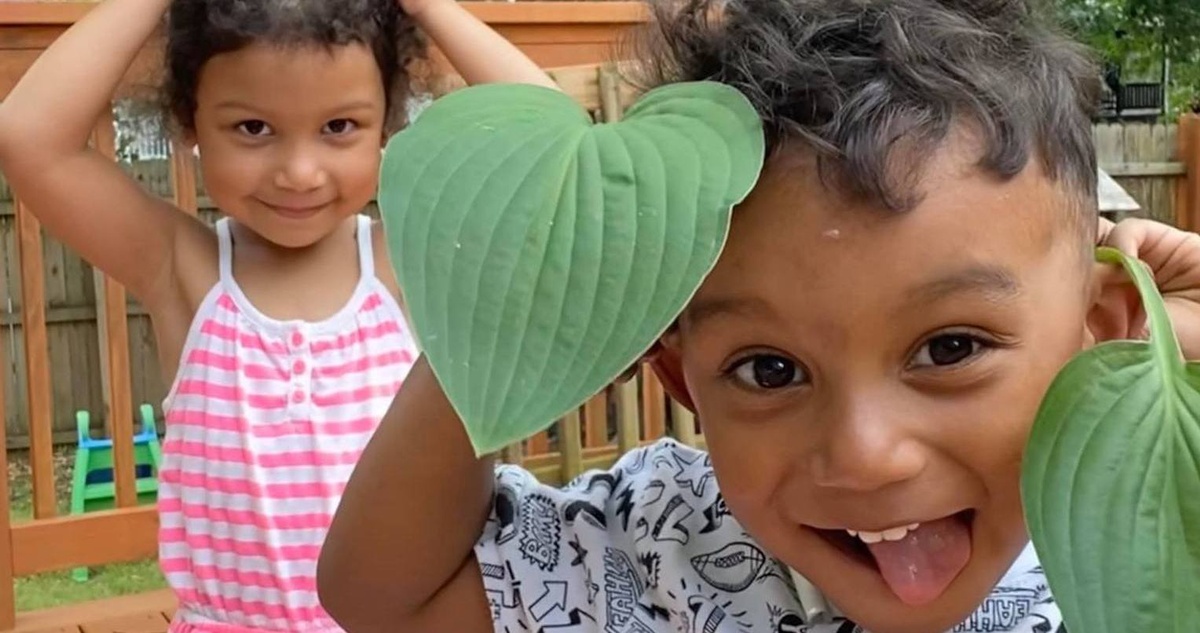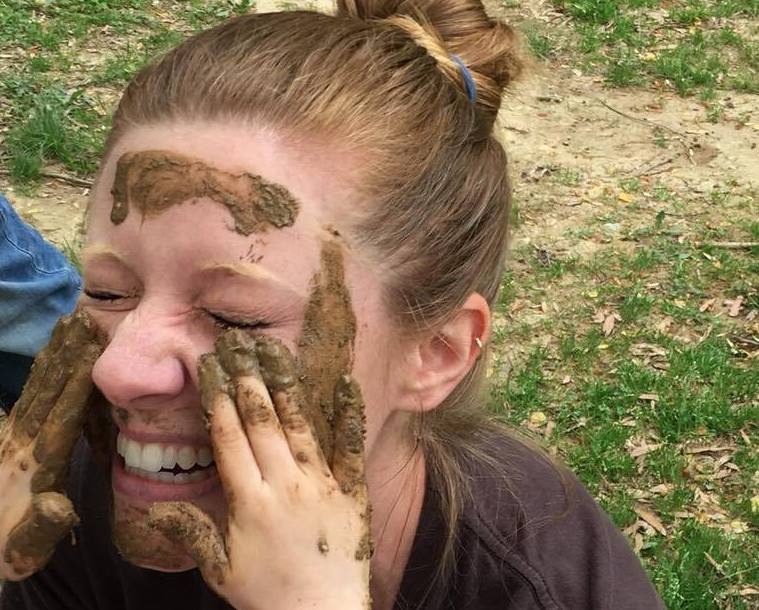One day, a few weeks into the pandemic, my 6-year-old said to me, “Mama, you never laugh anymore.”
My first instinct was to insist that this wasn’t true. I have a good sense of humor! And I have been known to crack a ridiculous joke or two at the dinner table. When I tried to think of a recent example, I realized that she was right.
Life was heavy, and it had been a while since I had laughed.
That needed to change. Not only are smiling and laughter our primary ways of expressing feelings of happiness, but the very act of smiling releases endorphins, one of the brain’s “feel good” neurotransmitters.
In other words, smiling actually creates the feeling of happiness and well-being. And, when we recall moments in which we felt joy, we can actually trigger those great feelings all over again.
The more moments of laughter we experience with our kids, the more we are able to find joy when we need it most.
Laughter supports early learning.
When we laugh, blood flows to our brain, making us feel more alert and better able to focus and attend to an activity. And, a good sense of humor gives kids the tools they need to see things from many perspectives, think flexibly and grasp unconventional ways of approaching a situation—all of which allow for divergent thinking, an essential component of creativity.
It’s healthy for kids to see and feel a wide range of emotions. They need to know that it is OK to feel happy or to laugh when difficult things are happening around them. Laughter also plays an important role in children’s social development. Humor creates a sense of a shared experience—this is why we laugh louder at a sitcom when watching with others than by ourselves. What my daughter was yearning for was not more time with me, but for more joyful connection.
Every bit of laughter counts
Children are experts at turning the most ordinary event or object into a “hilarious” joke. If we can enter into their humor play even just for a moment a day, we can soak up and store those “feel good” memories and draw on them when we really need them.
What we find funny can look very different from what sends our kids into fits of giggles and what your child finds funny will depend on their age.
Here’s what humor looks like at every stage so you can join in on the silly play.
For Infants and Toddlers
Babies’ first giggles are playful responses to physical touch, such as bouncing and tickling. When babies understand that objects and people still exist even when out of sight, peek-a-boo play is guaranteed to elicit squeals and giggles.
Once kids understand a concept, they take great joy in playing with it. Intentionally falling down is hilarious to a toddler, because he has mastered balancing and walking. Placing a shoe on her head and calling it a “hat” is funny because a toddler knows precisely what a hat is.
Humor can also be a powerful tool when our wee ones test limits. Responding to a toddler’s resistance to getting dressed by putting pants on your head can instantly transform a power struggle into a playful (and successful) parenting moment. Add humor to daily routines, play hide and seek and read a silly board book together (Belly Button Book and other titles by Sandra Boynton will do the trick!)
For Preschoolers
Preschoolers love to laugh at things they consider implausible or incredible, like pretending they are invisible or saying that their favorite food is mud. They love to make up nonsense words, sounds and silly stories. Kids at this age also laugh at themselves when they accidentally do something absurd like putting their pants on inside out.
Preschoolers understand the structure of riddles and knock-knock jokes and play with them, though they don’t always get the punchlines quite right. To enter the fun, sing silly songs together, make a funny face collage with body parts not where they should be and make up rhymes together. Have a family silly dance party and change the words to songs your child knows. Kids at this age love books like The Book With No Pictures by B.J. Novak and Stuck by Oliver Jeffers.
For School-Aged Kids
At this age, kids have developed a more sophisticated sense of humor and enjoy playing with puns, riddles and jokes. They get the comedy value of exaggeration and sarcasm. At this stage, kids have discovered that humor can “break the ice” during tense situations.
School-aged kids may also use jokes as a way to process things that are scary or upsetting to them. Fun games include charades, telling “opposite stories,” creating joke books and singing conversations at meal time. Try playing “catch a story,” where you take turns throwing a ball. The person who catches adds the next sentence.
For an easy way to share a good belly laugh together, try one of our DIY activities, like the Silly Olympics or Get Silly Day! You don’t have to be a natural comedian or invent your own stand-up material to bring moments of laughter and levity to your kids’ lives.


